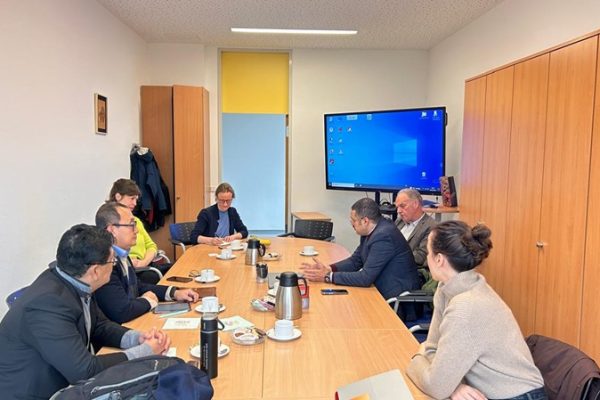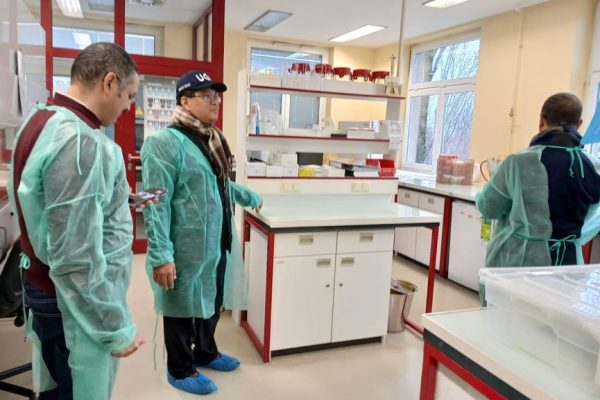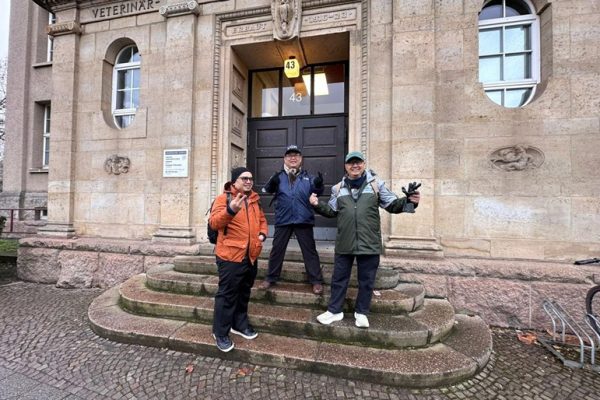Author: Kotimah
AchivementsStudent Activities Tuesday, 31 December 2024
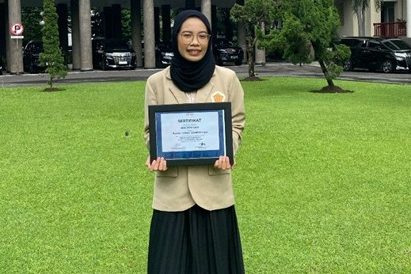
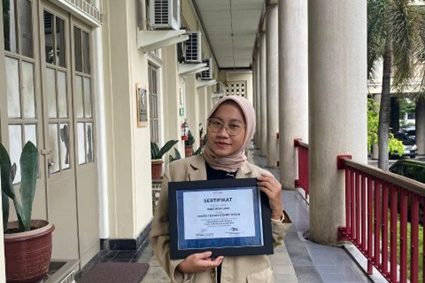
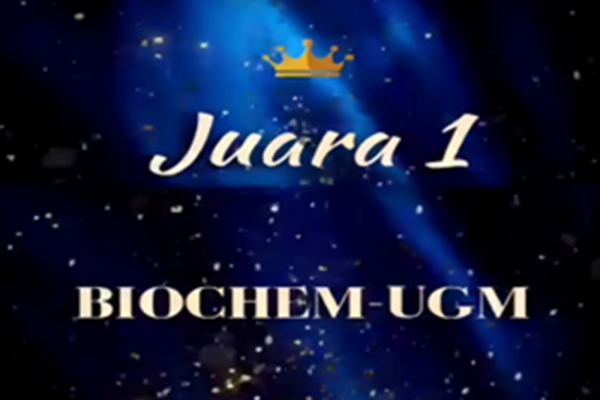
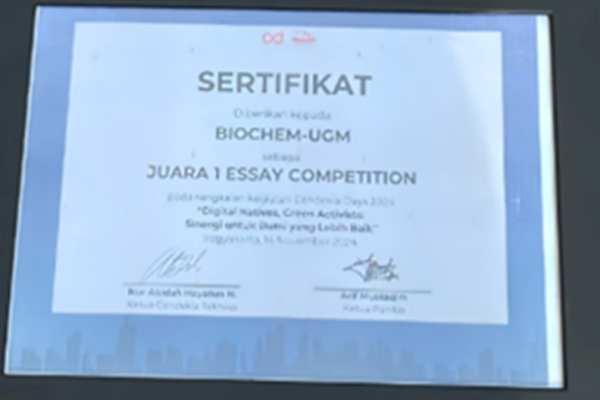
Author: Kotimah
AchivementsStudent Activities Tuesday, 31 December 2024
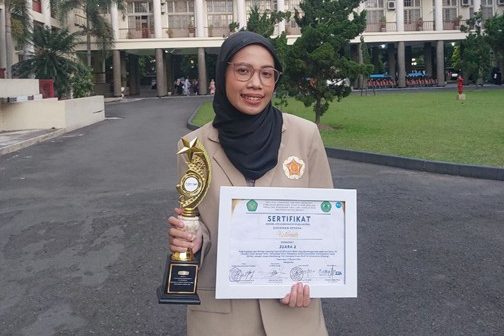
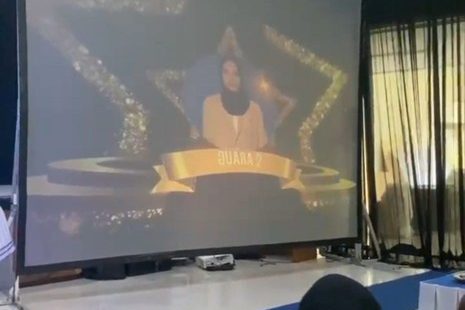
Author: Kotimah
Academic Monday, 30 December 2024
The Doctoral Program in Biological Sciences at the Faculty of Biology aligns with the faculty’s vision, which is to become a leading program as a center for education, research development, and community service in the field of biology, particularly tropical biology, based on Pancasila and oriented toward the interests of the nation.
The mission of the Doctoral Program in Biological Sciences at the Faculty of Biology is to:
The objectives of the Doctoral Program in Biological Sciences at the Faculty of Biology is to produce Doctorate holders in Biology who:
The aims of the Doctoral Program in Biological Sciences at the Faculty of Biology, UGM, is to conduct a Doctoral program through a series of learning processes, thereby producing graduates with competencies aligned with Presidential Regulation No. 8 of 2012 concerning the Indonesian National Qualifications Framework (KKNI).
The competencies of the Doctoral Program in Biological Sciences are structured based on the Indonesian National Qualifications Framework (KKNI), as outlined in Presidential Regulation No. 8 of 2012 concerning the KKNI. The KKNI represents the quality and identity of the Indonesian nation in relation to its national education and training system. These competencies encompass four dimensions: Knowledge, Research, Insight, and Attitude. The detailed formulation of competencies is provided in Table bellow:
| Code | Ability Dimension | Competency | Competence Description |
| A | Knowledge | Able to enhance community services through research and development | 1. Able to develop oneself and be innovative in seeking scientific truth through more efficient theories, concepts, and models to solve problems within their field of expertise. 2. Able to advance knowledge and technology in their field or professional practice through research, producing creative, original, and tested work. |
| B | Research | Able to participate in scientific development activities through research | 1. Able to apply and develop knowledge and skills in their area of expertise to find solutions or solve complex, cross-disciplinary problems. 2. Able to manage, lead, and advance research to address scientific and technological problems in their field using interdisciplinary, multidisciplinary, and transdisciplinary approaches. 3. Able to create new concepts in their field through research. |
| C | Insight | Able to solve problems within similar fields of knowledge | 1. Able to solve scientific and technological issues in their field using interdisciplinary, multidisciplinary, and transdisciplinary approaches. 2. Able to transform their scientific environment with the concepts they develop. |
| D | Attitude | Able to work independently of their scientific environment (Creative) | 1. Responsive and open to scientific and technological advancements and societal issues. 2. Able to communicate and share ideas and results with peers and the broader community. 3. Able to respect the ideas and work of other experts and develop science and technology beneficial to humanity, acknowledged nationally, regionally, and internationally. |
| PLO CODE | REGULAR PATHWAY | BY RESEARCH PATHWAY |
| ATTITUDE Upon completing this Programme, the graduates demonstrate an attitude of being able to: | ||
| AT1 | contribute to improving the quality of life in society, nation and state, and the progress of civilization based on Pancasila; | participate actively in the progress of society, the nation, and the state through innovative and relevant biological research, based on Pancasila. |
| AT2 | demonstrate honesty, responsibility, self-confidence, emotional maturity, ethics, and awareness of being a lifelong learner; | demonstrate high scientific integrity, responsibility, self-confidence, and emotional maturity throughout every stage of research as well as recognize their role as lifelong learners who continuously develop themselves. |
| AT3 | internalize academic values, norms and ethics; | internalize academic norms and ethics in depth, including matters of data ownership, copyright, and scientific collaboration. |
| GENERAL SKILLS After completing this Programme, the graduates will be able to: | ||
| GS1 | discover or develop new scientific theories/concepts/ideas in biology; | formulate, design, or develop original, new scientific theories, concepts, or ideas in the field of biology through deep and critical independent research. |
| GS2 | contribute to the development and practice of the field of biology through scientific research based on scientific principles and ethics through interdisciplinary, multidisciplinary, or transdisciplinary approaches in solving problems in the field of biology; | identify, integrate, and modify biological knowledge from various disciplines (interdisciplinary, multidisciplinary, or transdisciplinary) to analyse and solve complex scientific problems. |
| GS3 | managing and formulating valid and accountable research data by upholding academic integrity and prioritizing anti-plagiarism; | organize, interpret, and evaluate valid and accountable research data, and uphold academic integrity and anti-plagiarism in all publications and reports. |
| GS4 | communicate research results through reputable media and scientific publications to the academic community and/or directly to the wider community; and | construct and present research findings effectively through publications in reputable scientific media (international journals, proceedings) and/or direct presentation to the academic community and the wider public. |
| GS5 | demonstrate academic leadership and increase independent learning capacity. | Plan, lead, and esvaluate research progress, as well as demonstrate capabillity to do self-directed learning and continuously develop their capacity |
| KNOWLEDGE After completing this Programme, the graduates will be able to: | ||
| KN1 | explain the scientific philosophy of biology which is related in depth to structure, function, diversity, reproduction, evolution and engineering of biological systems; | explain and critique the philosophy and scientific paradigms of biology in depth, especially regarding the structure, function, diversity, reproduction, evolution, and engineering of biological systems, in order to formulate strong scientific arguments. |
| KN2 | assess substantial and leading theory in the field of biology/biological resources in order to support education for sustainable development; and | assess substantial and cutting-edge theories in the field of biology to construct sustainable solutions that can be implemented. |
| KN3 | synthesize and generate new concepts in the fields of biology and applied biology. | synthesize and generate new concepts in the fields of biology and applied biology that are relevant to scientific advancements and industry needs. |
| SPECIFIC SKILLS After completing this Programme, the graduates will be able to: | ||
| SS1 | deepen and expand knowledge in the field of biology to produce models or methods or develop theories that are original, tested and innovative through research with an interdisciplinary, multidisciplinary or transdisciplinary approach; | do synthesizing, organizing, and building knowledge in the field of biology to produce original, tested, and innovative models, methods, or theories through research with an interdisciplinary, multidisciplinary, or transdisciplinary approach |
| SS2 | propose new solutions or recommend proposed solutions to solve biological resource problems in a sustainable manner through an interdisciplinary or multidisciplinary approach to fund deduction or induction; and | analyse and evaluate various solutions to solve biological resource problems sustainably through a deductive or inductive approach, then formulating the innovative and most effective solution. |
| SS3 | apply the philosophy of biological systems in developing biological concepts in the areas of food, health, bioenergy, biomaterial and/or the environment | develop and apply the philosophy of biological systems in organizing biological concepts in the fields of food, health, bioenergy, biomaterials, and/or the environment in an innovative and targeted manner. |
Academic Monday, 30 December 2024
When applying for admission to the Program Doctor in Biological Sciences, prospective students are required to submit a range of essential documents to ensure their eligibility. These documents are crucial for the evaluation of the applicant’s academic background, language proficiency, and research potential. Below is a list of the required documents that must be carefully prepared and submitted as part of the application process.
For further information you can visit https://um.ugm.ac.id (Indonesian) or https://admission.ugm.ac.id (International students)
Academic Monday, 30 December 2024
Academic Requirements for Prospective Students for Program Doctor in Biological Sciences UGM as follow:
*If these requirements are not met, the person concerned, if accepted, must:
According to the Rector’s Decree for Doctoral by Research no. 18 year 2019, there are addition of requirements for admission of By Research Program as follows:
Thus, the requirements for prospective new students of the Program Doctor in Biological Sciences would be:
For further information you can visit https://um.ugm.ac.id (Indonesian) or https://admission.ugm.ac.id (International students)
Cooperation Wednesday, 18 December 2024
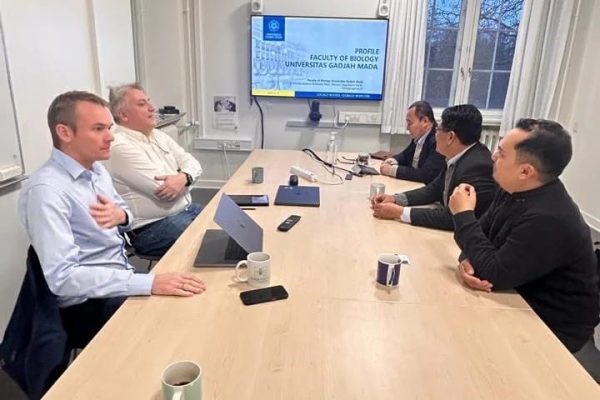
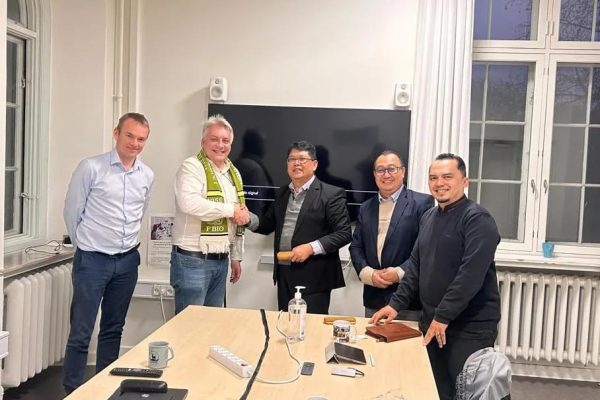
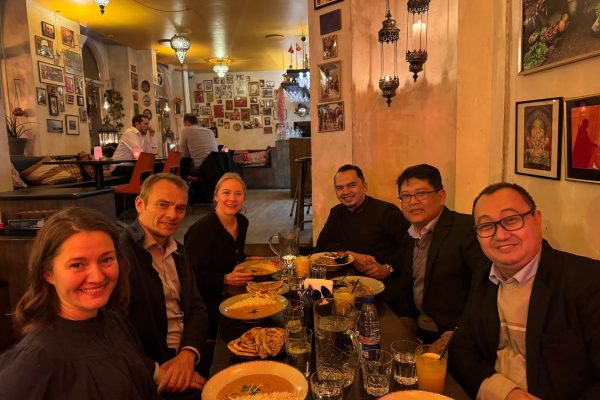
Cooperation Tuesday, 17 December 2024
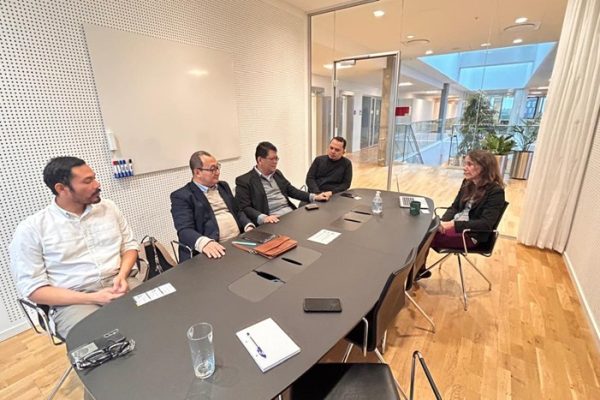
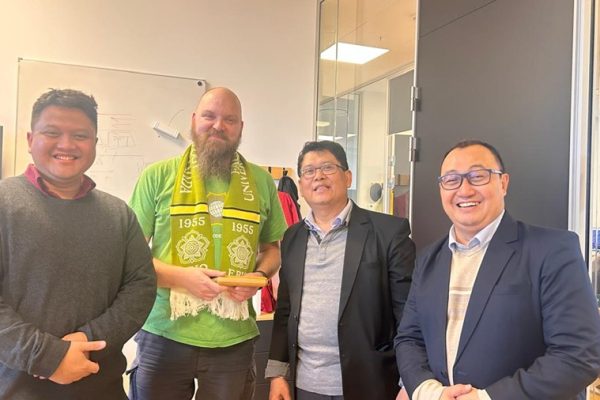
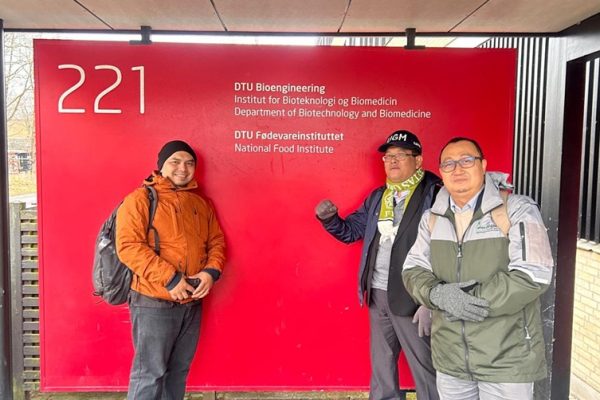
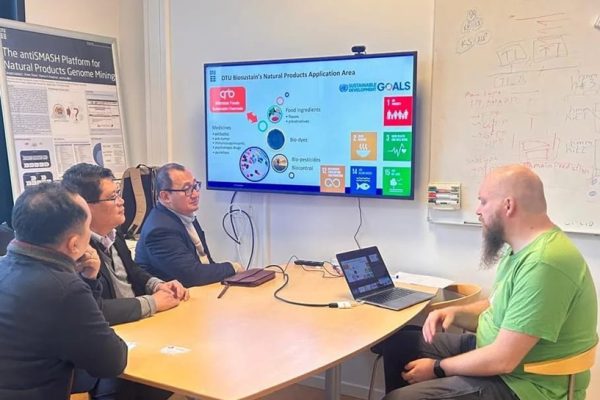
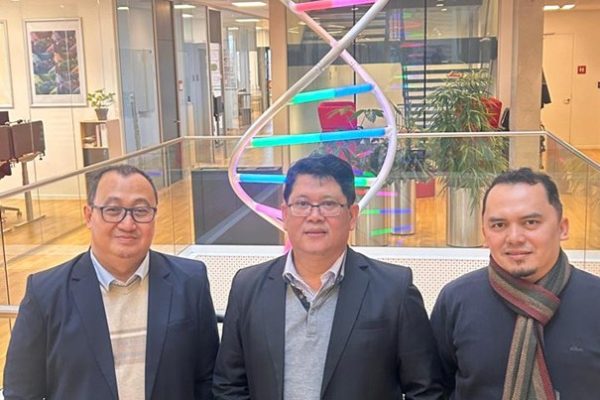
News ReleaseStudent Activities Tuesday, 17 December 2024
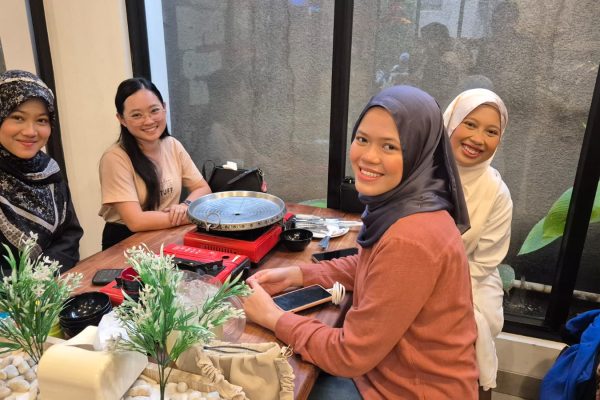
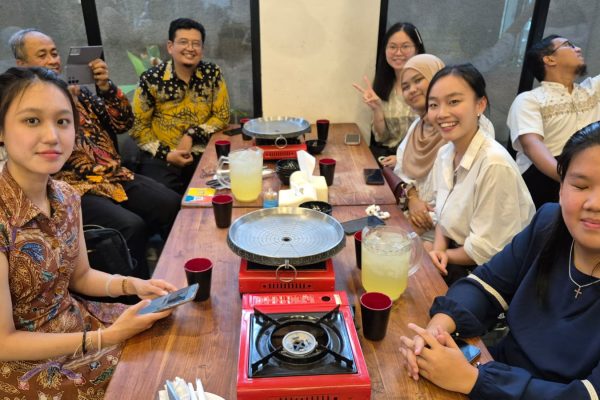
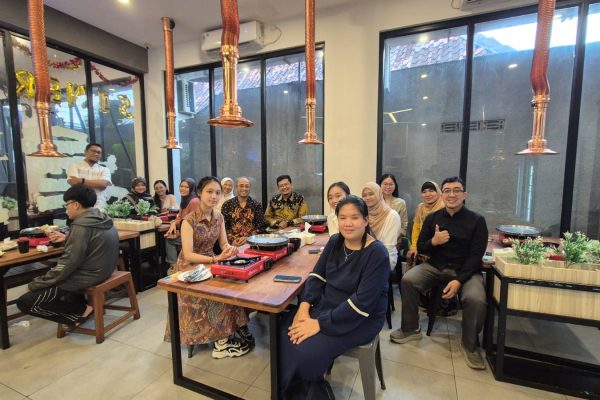
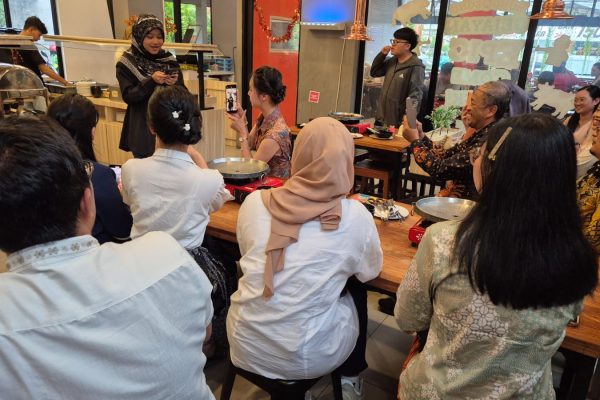
Student Activities Monday, 16 December 2024
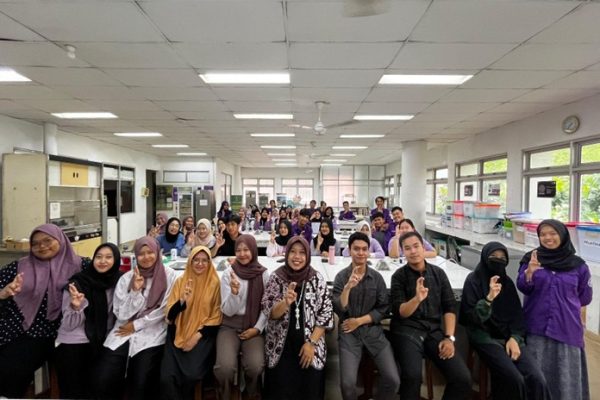
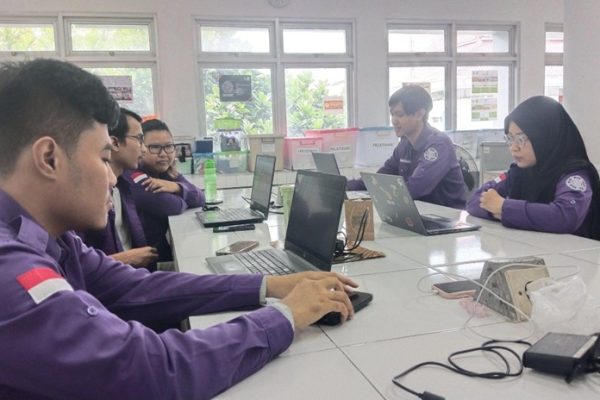
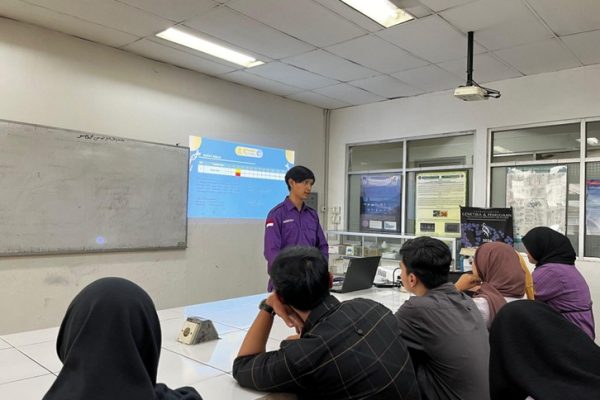
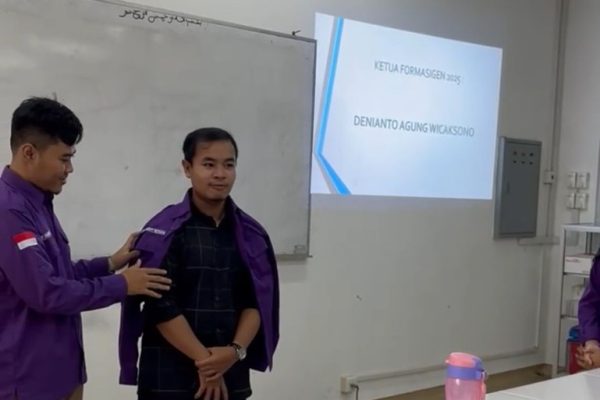
Cooperation Friday, 13 December 2024
